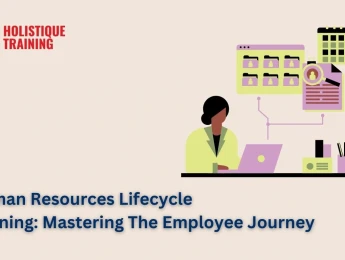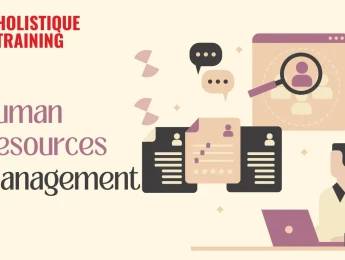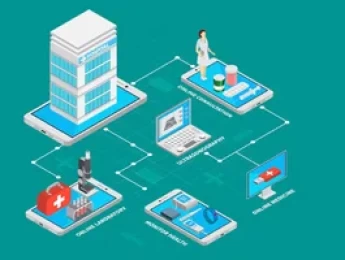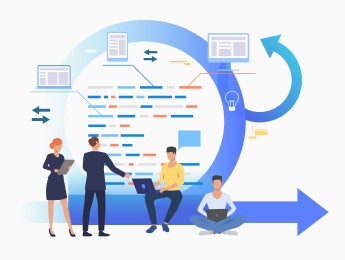Successful corporations thrive on competent teamwork, especially in today's dynamic business environment. This course delves into the advantages of fostering innovative and collaborative teams, highlighting the crucial role of the right people, clear objectives, efficient processes, and effective leadership in achieving high performance. By fostering a culture of innovation and collaboration, organisations can gain a competitive edge, enhance motivation and engagement, develop talent, and elevate team and organisational performance.
Upon completion of this course, participants will be able to:
- Evaluate innovative and collaborative teams' key features and benefits and create conducive environments for their success.
- Identify strategies for fostering an environment conducive to innovation and collaboration.
- Develop shared purposes and objectives within project teams.
- Implement management practices to inspire and support innovation, collaboration, and excellence.
- Differentiate between projects and routine business operations.
- Understand project roles, responsibilities, and the characteristics of effective teams.
- Enhance awareness of preferred team player styles.
- Apply principles and behaviours of effective management within project teams.
- Recognise the importance of effective team communication.
- Identify and manage conflicts using resolution techniques and feedback.
- Utilise planning tools in project planning sessions.
- Participate in risk assessment and planning sessions.
- Employ creative thinking techniques to enhance problem-solving.
- Engage in lessons-learned activities to improve future project performance.
This course suits a wide range of professionals, including:
- Leaders and managers responsible for team performance or skill development.
- HR and Learning and Development professionals focused on organisational skill enhancement.
- Individuals working within project teams, including Project Professionals, Cost Estimators, Engineers, Designers, and Project Office Staff.
This course utilises a blend of interactive lectures, hands-on activities, group discussions, and practical exercises to ensure a comprehensive understanding and application of the material. Participants will engage in case studies and real-world scenarios to relate theoretical concepts to actual project environments. The course will incorporate the use of role-playing and team-building exercises to illustrate the dynamics of effective teamwork and leadership. Continuous feedback and reflection sessions will be integrated to reinforce learning and encourage personal and professional growth. This methodology aims to create an immersive and collaborative learning experience, enabling participants to develop the skills needed to foster innovation, enhance team performance, and drive successful project outcomes.
Day 5 of each course is reserved for a Q&A session, which may occur off-site. For 10-day courses, this also applies to day 10
Section 1: Fundamentals of Project Teamwork
1.1 Understanding Project Dynamics
- Definition and characteristics of a project.
- Evolution of effective teams.
- Overview of the project lifecycle.
1.2 Leadership and Team Roles
- Modern leadership roles and personal/team accountability.
- Identifying team player preferences using Belbin's model.
1.3 Building Effective Teams
- Acquiring and selecting staff for cross-functional project teams.
- Effective team communication strategies.
- Facilitating productive project team meetings.
Section 2: Enhancing Team Performance
2.1 Managing Team Dynamics
- Establishing authority and influence within the team.
- Addressing conflicts and non-compliance issues.
2.2 Collaboration and Planning
- Participating in risk management processes.
- Collaborative planning techniques to maximise teamwork.
2.3 Fostering Creativity and Innovation
- Leveraging creativity and innovative thinking practices.
- Developing a team development programme for high performance.
Section 3: Optimising Team Effectiveness
3.1 Leadership and Motivation
- Inspiring and motivating team members towards shared goals.
- Providing constructive feedback and coaching.
3.2 Monitoring and Reporting
- Monitoring progress and achievements effectively.
- Reporting project progress and performance.
- 3.3 Closing Projects and Learning
- Wrapping up projects and team activities effectively.
- Engaging in lessons-learned activities to improve future performance.
Section 4: Communication and Conflict Management
4.1 Effective Communication
- Understanding the importance of effective team communication.
- Utilising communication tools and techniques.
4.2 Conflict Resolution
- Identifying and managing conflicts within the team.
- Providing feedback and resolving conflicts diplomatically.
Section 5: Planning and Risk Management
5.1 Project Planning
- Utilising planning tools and techniques in project planning sessions.
- Developing shared project objectives and scope.
5.2 Risk Assessment and Management
- Participating in risk assessment and planning sessions.
- Implementing risk management strategies to mitigate project risks.
Upon successful completion of this training course, delegates will be awarded a Holistique Training Certificate of Completion. For those who attend and complete the online training course, a Holistique Training e-Certificate will be provided.
Holistique Training Certificates are accredited by the British Assessment Council (BAC) and The CPD Certification Service (CPD), and are certified under ISO 9001, ISO 21001, and ISO 29993 standards.
CPD credits for this course are granted by our Certificates and will be reflected on the Holistique Training Certificate of Completion. In accordance with the standards of The CPD Certification Service, one CPD credit is awarded per hour of course attendance. A maximum of 50 CPD credits can be claimed for any single course we currently offer.
- Course Code PO4-111
- Course Format Classroom, Online,
- Duration 5 days














